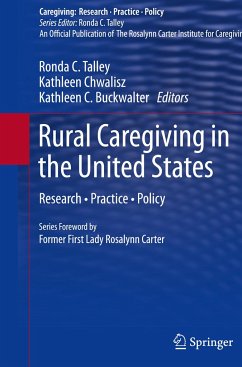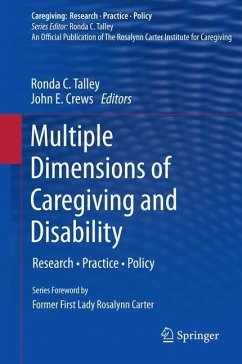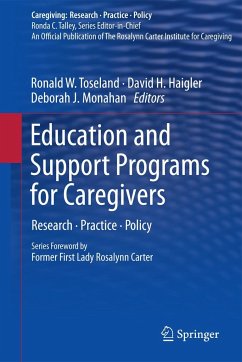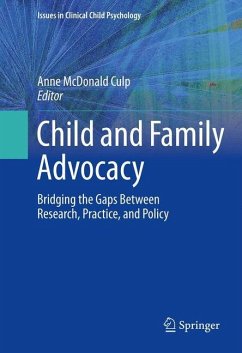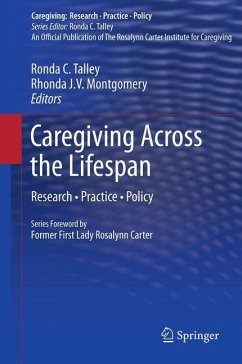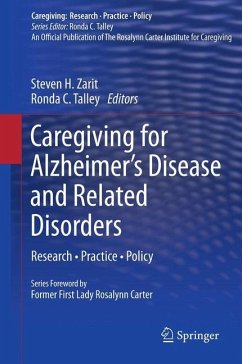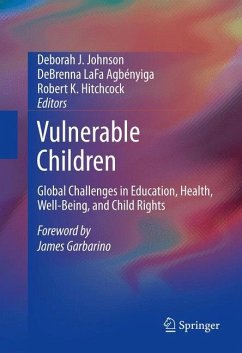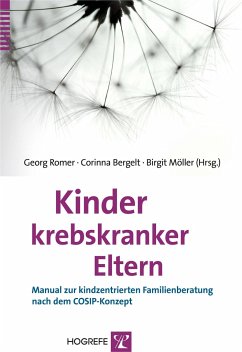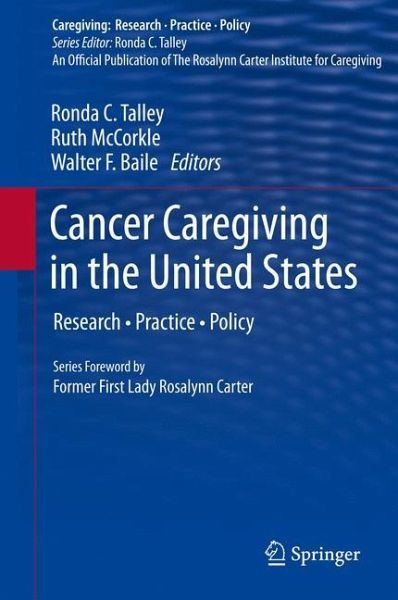
Cancer Caregiving in the United States
Research, Practice, Policy
Herausgegeben: Talley, Ronda C.; McCorkle, Ruth; Baile, Walter F.

PAYBACK Punkte
38 °P sammeln!
Despite advances in detection and treatment, cancer remains a source of pain and distress to patients and of complex challenges to the loved ones caring for them. The trend toward shorter hospital stays in particular has increased the physical, psychological, and financial burden on caregivers, often leading to adverse effects on patients.Cancer Caregiving in the United States illuminates these complex concerns with authoritative detail. This wide-ranging volume provides a comprehensive survey of cancer-related issues, including those affecting the care triad (patients-family members- professi...
Despite advances in detection and treatment, cancer remains a source of pain and distress to patients and of complex challenges to the loved ones caring for them. The trend toward shorter hospital stays in particular has increased the physical, psychological, and financial burden on caregivers, often leading to adverse effects on patients.
Cancer Caregiving in the United States illuminates these complex concerns with authoritative detail. This wide-ranging volume provides a comprehensive survey of cancer-related issues, including those affecting the care triad (patients-family members- professionals) and quality of care as well as the numerous physical, emotional, and financial challenges that caregivers may need to confront. Sources of caregiver difficulty at each stage of the disease, from diagnosis to end of life, are explored. Each chapter analyzes its topic in terms of practice, research, education, and policy, providing a wealth of literature reviews, assessment and care models, interventions, and recommendations for future study and practice.
Coverage includes:
Caregiving issues for cancer patients with long-term, short-term, and intermittent needs.Family caregivers as members of the treatment team.The impact of health disparities on caregivers.Cancer care policy and advocacy.End-of-life issues for cancer caregivers.Legal, financial, and ethical issues.
Cancer Caregiving in the United States is a core reference for researchers, professionals/scientist-practitioners, and graduate students in such caregiving fields as clinical psychology, social work, nursing, public health and medicine, social policy, and educational policy.
Cancer Caregiving in the United States illuminates these complex concerns with authoritative detail. This wide-ranging volume provides a comprehensive survey of cancer-related issues, including those affecting the care triad (patients-family members- professionals) and quality of care as well as the numerous physical, emotional, and financial challenges that caregivers may need to confront. Sources of caregiver difficulty at each stage of the disease, from diagnosis to end of life, are explored. Each chapter analyzes its topic in terms of practice, research, education, and policy, providing a wealth of literature reviews, assessment and care models, interventions, and recommendations for future study and practice.
Coverage includes:
Caregiving issues for cancer patients with long-term, short-term, and intermittent needs.Family caregivers as members of the treatment team.The impact of health disparities on caregivers.Cancer care policy and advocacy.End-of-life issues for cancer caregivers.Legal, financial, and ethical issues.
Cancer Caregiving in the United States is a core reference for researchers, professionals/scientist-practitioners, and graduate students in such caregiving fields as clinical psychology, social work, nursing, public health and medicine, social policy, and educational policy.





